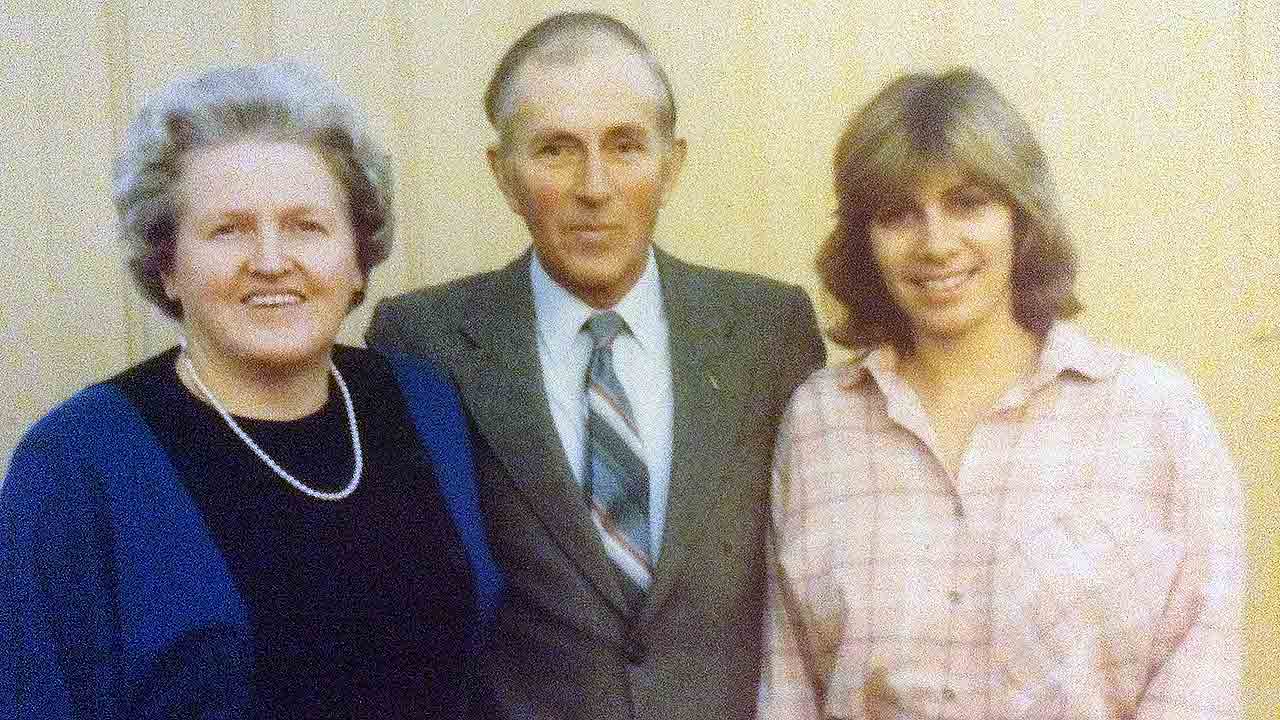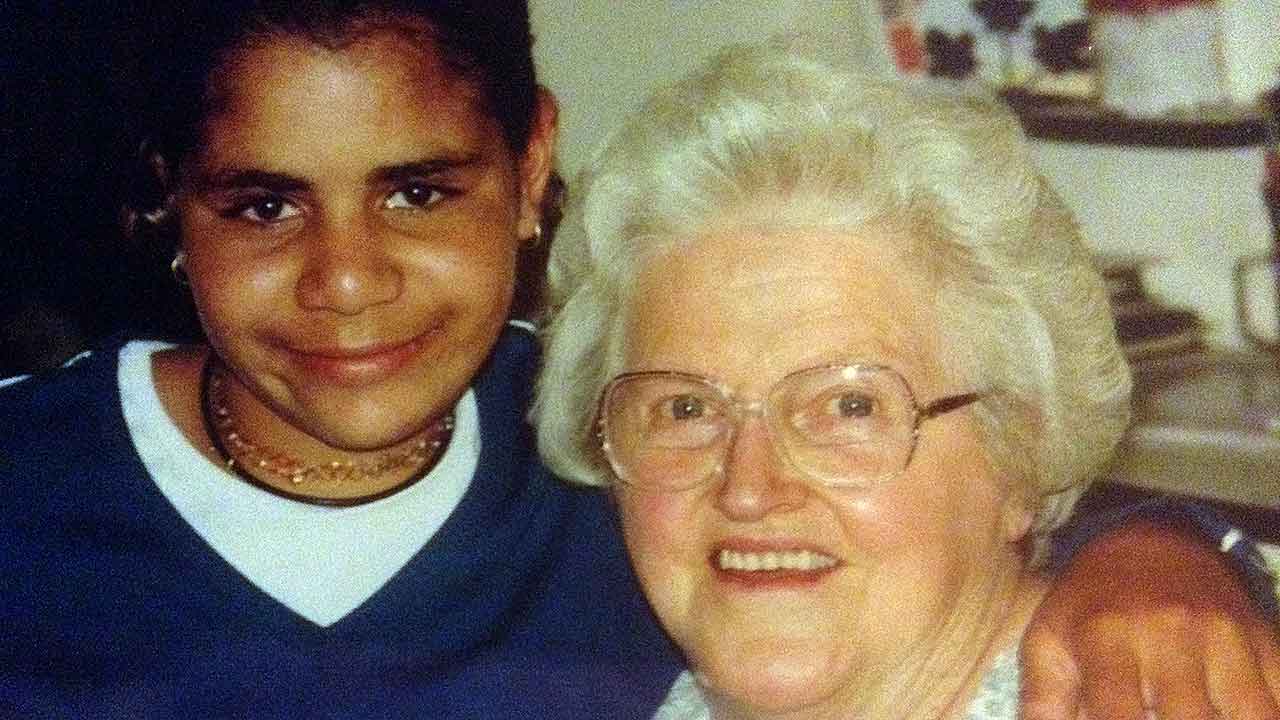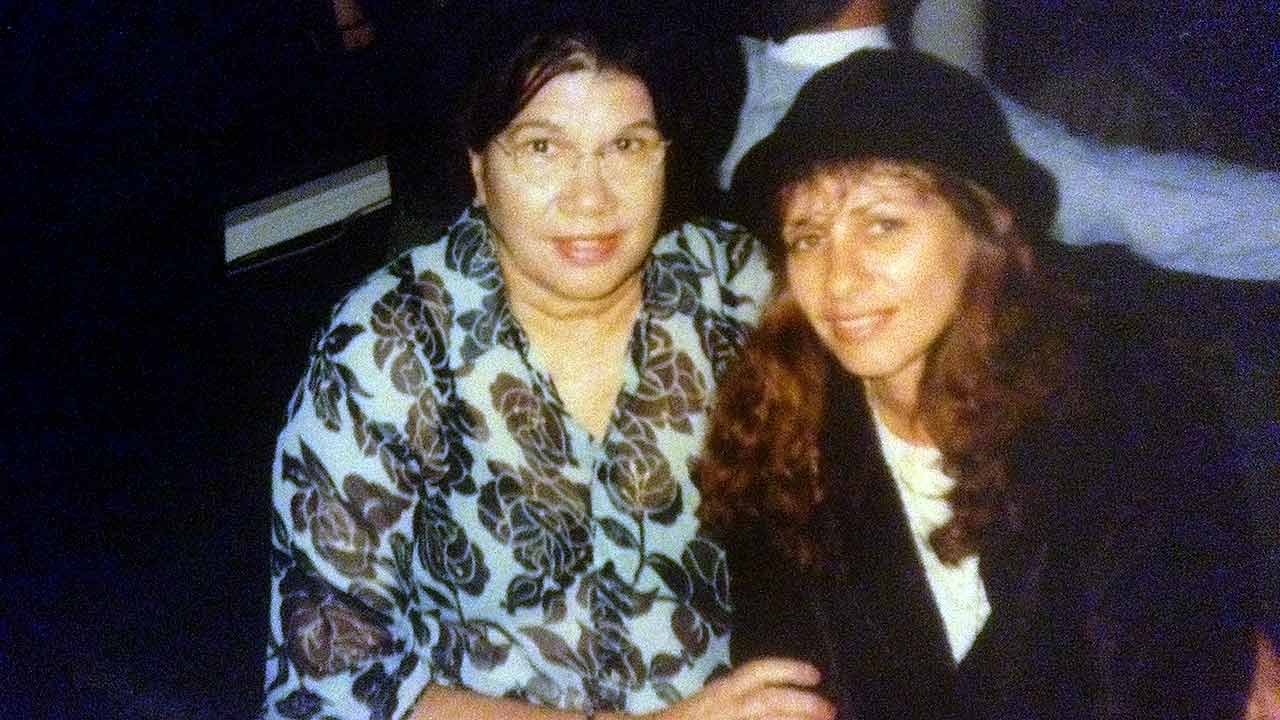I grew up on a farm at Hart in South Australia with the Eckermann family and I had several adopted siblings. We always knew that we were adopted, and my older adopted brother and I knew that we were Aboriginal - that was not hidden from us. We grew up on the farm, so farm life’s always fun. The Eckermann family were really kind people.
But I think it was the racism at high school that came as a bit of a shock, and some days was really severe, and that was the problem of being adopted as Aboriginal kids.
My brother and I never knew how to take that home and discuss that with our adopted parents. Apart from a handful of friends, I didn’t know much about myself. It’s very difficult as a young adult not to be able to tell people where you belonged. There was always that empty place in your mind about where you fitted in. That was the hardest thing when your Aboriginal friends would ask ‘hey where you from sis?’ and not being able to answer that. Every time I was asked that question it was really traumatic.

Ali Cobby and her adoptive parents - the Eckermanns. Source: Ali Cobby
'I went looking for my mother when I was 18'
My confusion and anger grew, so I took off when I was 17, because I was getting in a bit of trouble with the cops and I didn’t want to go to the big house. I ran away from my adopted family and lived out on the railway line that crosses the Nullarbor Plain. And there were traditional people that used to come and sit there waiting for the train to take them east or west for business and ceremony, and often I used to sit with them. They were always very kind to me.
I went looking for my mother when I was 18 ... but we couldn’t find the right paperwork and I was unsuccessful.
(Decades later) I’d had a major motorbike accident and had spent five-and-a-half months in hospital, and two years learning how to walk again. It was the first time that I couldn’t run around looking for myself because I was stuck in a wheelchair, and I had to sit and think, and I guess I hadn’t done much of that before.
Around that time, I also did a long stint in rehab and it was while I was there, just reflecting on life that it became urgent to try to look for my mother again. And this time it was successful. It was within weeks of signing the paperwork that I had news of her.
'It was the first time I could walk into the mirror of myself'
I flew from Adelaide to Canberra, via Sydney, by myself. I was freaking out. There’s so many emotions that go through your body and your mind, and you’re just like - your skin’s fizzing. I got on the plane and I remember there was really bad turbulence on the way to Canberra, to the point that drinks were spilling and it was really, really rough. And I wasn’t even scared because I felt like if the plane crashed I could still fly.
Then when we landed, I think I was in a bubble as a walked into the airport. And then when I spotted her, it was such a memorial walk because it was the first time I could walk into the mirror of myself. We had the same eyes, I looked so much like her, and I had never seen that before in life. It is hard to describe. Magnificent.
I was supported to spend two weeks with mum. She seemed so strong, because she was co-chair of National Sorry Day. And so the strongest memories of watching her standing up talking to the crowd, and the respect that she held from so many stolen generations people from around the country - many of whom I knew from the Northern Territory.
It was only when I met my mother and asked her where she was born that she told me that she was born at Ooldea, which was an old Aboriginal meeting place on the Nullarbor where I had lived in my late teens.
And I think the world stood still for a moment with the realisation that the first place that I’d run was my mother’s birthplace. And I remembered those traditional people that’d come up from the south… and realised after all these years, no wonder they were so kind to me - they were my family.
They probably recognised my face even though they had no idea who I was. I’m surprised that I never had an inkling of that. So in that short sentence of ‘where were you born mum?’ and her answer, I felt a connection that I hadn’t felt before.

Ali's daughter/niece Audrey (daughter through kinship system), and adoptive Mum Frieda. Source: Ali Cobby
'I had repeated her history'
I think in those early days of meeting mum and those early conversations, it gave me a lot of hope for my future. I think when you grow up and you don’t know who your family is, and where you belong, I think hope is very removed from you. It was that delight at being able to introduce myself to the wider Aboriginal community, because until I met mum I didn’t know who I was.
Some of the other important conversations that we had was realising that I had repeated her history before I knew my history, because I had relinquished a son at the same age as mother, and hadn’t met him yet - I had to wait until he was 18. I met mum and four years later I was playing her role with my son. So she taught me a lot in preparation for the time when I would get my son back, either by what she did well or even bad.
There were so many poignant conversations and interactions between us when we realised that we had a shared history beyond the mother and daughter relationship. That we had both been relinquished children and also relinquishing mothers. I was 33 or 34 when I met mum. But I do remember the morning that I was leaving I felt very young. And that was the morning that I sat in her lap, and she held me. And we probably both cried for a long time.
I think the other thing that I loved about meeting mum was that I was encouraged to have close connections with her two sisters, who are also my mothers Aboriginal-way. All of a sudden I had three mothers, and that was a real blessing.
'Anger came when she died'
I had so few years with mum before she got dementia. And I believe that the hurts of our childhood come out in our health later in life. When we’re younger… we have such a resilience. And yet as soon as age catches up with you, I think those hurts catch up with you too. I think that’s what was sad to watch my mother perish into dementia so quickly.
That anger came when she died. I was so angry. Because despite the fact that I was really grateful for the years that I had with her, I was so angry because it just wasn’t long enough. Because she’d been sick for quite some time, there were still conversations maybe that I wished we could have. That anger stayed with me for a really, really long time. I lost my happiness for a long time. Thankfully my poetry was the avenue to write about it, and that resulted in my last collection ‘Inside My Mother’. I needed to turn it from grief into a celebration.
It’s nearly four years since mum’s passed, and it’s only now that I can stand stronger in my relationships with my children and grandchildren. I think mother and daughter relationships often travel the same route in different times, but the learning’s quite similar.
Meeting mum as an adult taught me some really profound things, like the importance of children keeping in contact with their parents. Sure it’s a lovely thing when parents contact children, but I think it’s more special when children are letting their parents know how they are and saying g’day and being in contact more regularly.
With my mums, if they popped into my mind or they appeared in my dreams, that was the time that I would ring them or visit them if possible. And I like to think that Mother’s Day is well beyond one day of the year.
I would encourage everyone to let your family, let your mothers and your grandmothers know how you feel about them. Don’t take anything for granted, because I know what it’s like not to have family and culture, and it’s been the biggest blessing of my life to have found it and to be immersed in it. Ali Cobby Eckermann will join two other Aboriginal poets to share stories of the Stolen Generations at the on Saturday, May 21.
Ali Cobby Eckermann will join two other Aboriginal poets to share stories of the Stolen Generations at the on Saturday, May 21.

1997: When Ali met her Mum Audrey Cobby, also known as Audrey Kinnear and Ngingili Audrey Cullen. Source: Ali Cobby




